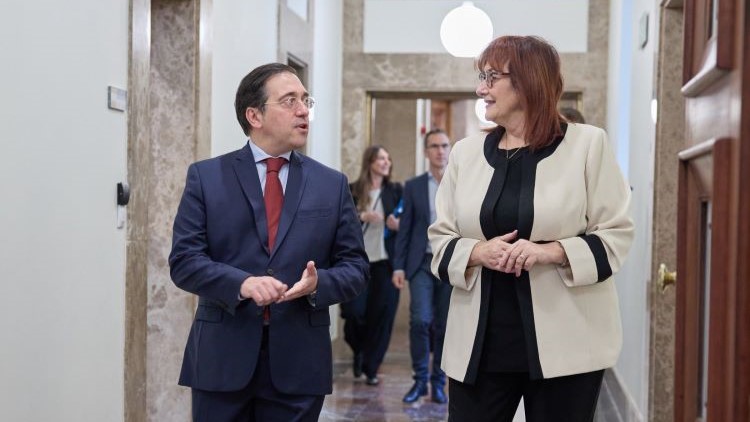The Diplomat
The Minister of Defence, Margarita Robles, will today turn down the NATO meeting with representatives of the European and North American defence industry to work on arms production plans, reports Europa Press.
The decision was taken by the minister after learning that the Atlantic Alliance has not included Spanish companies in plans to increase investment in the Euro-Atlantic arms industry.
Allied sources confirmed that Robles has communicated that she will not participate in the meeting with ministers and representatives of the sector in protest at a process that Spain considers not very transparent, of which the criteria followed are not known and which has been carried out without the necessary consultations. They point the finger at Secretary General Jens Stoltenberg’s team, and as a result they consider the list of arms companies participating in the meeting to be “not very inclusive”.
For all these reasons, Spain “vetoes” the industrial plan proposed by NATO and will not change its position until Spanish entities are included, sources from the Ministry of Defence told Europa Press, although Madrid hopes for reparations and that the Spanish defence sector will be taken into account in future meetings.
Beyond considering the importance of NATO having its own strategy for military production, Spain sees this first step as a “bad starting point” and is not the only one affected by this situation, as more European allies have been left off the initial list, which contains companies from only 18 NATO member countries, something that has caused unease in other countries.
This process coincides with the development of EU plans to incentivise increased military production in its own industry, including a joint procurement and aid programme for European armouries to increase production capacity, which is limited to companies from the EU-27 and Norway.
These plans have raised the suspicions of some allies, who see the need for Europe to increase its production, but are wary of aid being limited to European companies. Some look askance at the EU’s plans and want military production plans to have the NATO stamp on them as well, allied sources explain.
Although NATO and the EU have defended their coordination when it comes to developing industrial plans for arms production, the military organisation recognises that sometimes “the small print fails”, generating this type of friction.







